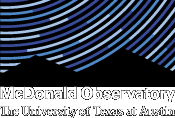Discovery of Planet Too Big for Its Sun Throws Off Models of Solar System Formation
AUSTIN, TX – The discovery of a planet that is far too massive for its sun is calling into question what was previously understood about the formation of planets and their solar systems.

